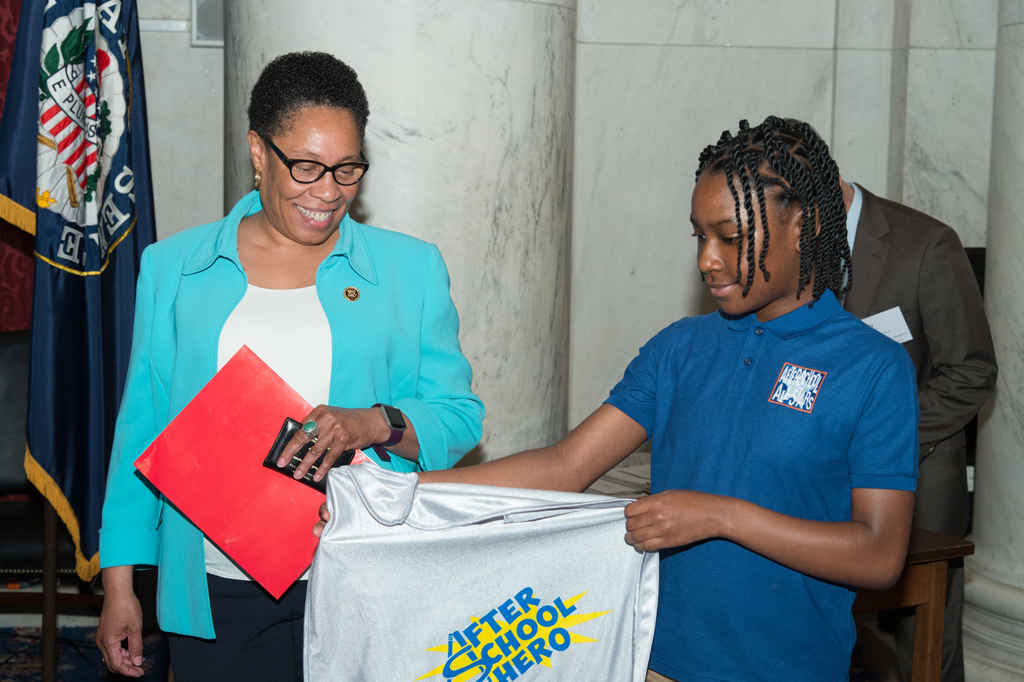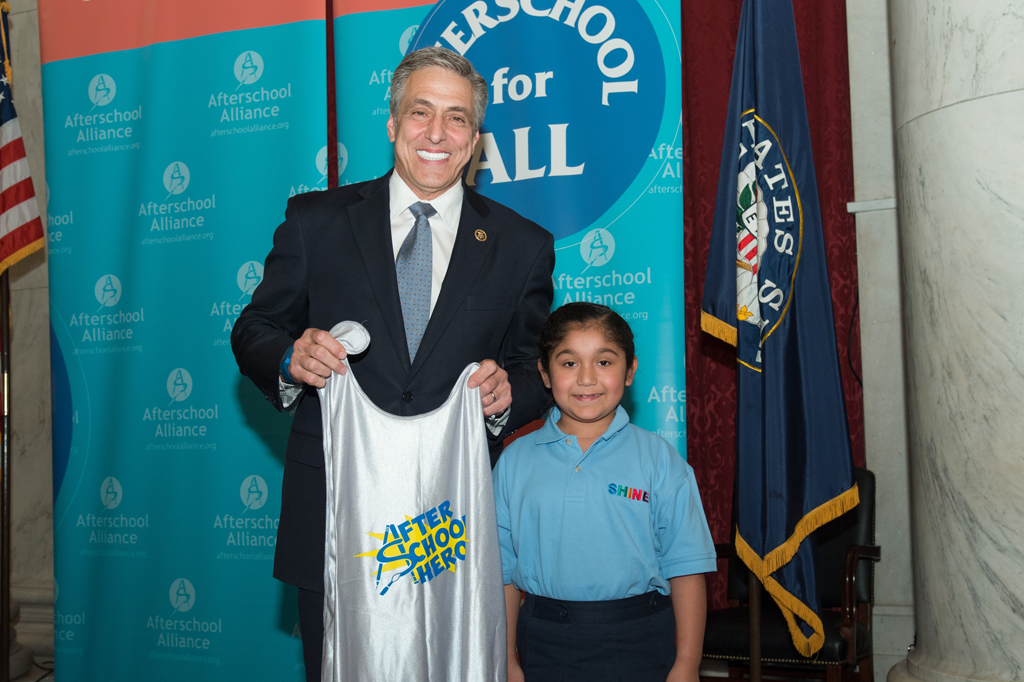On June 7, after-school organizations across the county will send representatives to Capitol Hill to talk about the value of their program as part of the annual visit to Congress organized, by the Afterschool Alliance.
But is anyone in Washington paying attention to youth issues right now?
Last week, President Trump released a budget that would tear a hole in the social safety net for children and youth, according to many advocates for kids.
And Congress is focused on investigating the president, with each new revelation taking lawmakers’ time and attention.
“So many things are happening, it’s hard to focus attention on the needs of children and youth,” said Jodi Grant, executive director of the Afterschool Alliance, who called the White House budget “appalling.”
“It’s going after poor people,” she said.
The budget would cut more than $1 billion in funding for after-school programs by killing the 21st Century Community Learning Centers initiative in the U.S. Department of Education.
Food stamps would be cut by more than one-fourth, Medicaid and the Children’s Health Insurance Program (CHIP) by nearly one-fifth.
“People on both sides of the aisle think this budget is draconian,” Grant said.
“This is one of the gravest threats our field has ever faced,” she said, referring to the field of youth development.
Disagreement in Congress
Lee Sherman is president and CEO of the National Human Services Assembly, an association of some of the nation’s largest human services organizations, including the Boys & Girls Clubs of America, Girls Inc., Mentor and the National 4-H Council.
He said many members of Congress disagree with various proposed budget cuts.
But “with the issues around the Russia investigation … it does divert attention from legislative and funding issues we need to address,” Sherman said.
He said Congress is focusing on the budget, tax changes and health.

Last year, After-School All-Stars participant Nia Crowell met Rep. Marcia Fudge, D-Ohio.
“My biggest concern is that the budget proposal from the White House creates a floor that is so low that — even if it doesn’t pass in its entirety — that it will be difficult to maintain funding [for children and youth programs], much less take care of issues that arise.”
[Related: Two Interconnecting Puzzle Pieces: Trauma-Informed Approach and Restorative Justice]
Proposed cuts to Medicaid and CHIP, as well as cuts in food stamps, would significantly affect children and youth, Sherman said.
Many member organizations of the National Human Services Assembly have after-school or mentoring programs that have a big impact on youth, he said, helping young people live up to their potential. Those programs would lose federal funding, Sherman said.
Organizations mobilize
The Afterschool Alliance mobilized supporters of after-school programs after the president’s “skinny budget” was released in February. Nearly 1,500 organizations signed a letter urging Congress to keep after-school funding, and 81 members of Congress signed a bipartisan letter to House Appropriations Committee leaders asking them not to cut funding, according to the Afterschool Alliance.
“Our elected officials need to focus on what’s important to the country. We can’t give up on them,” Grant said.
She said that as after-school supporters contact members of Congress, it provides a chance to “shine a light on what the programs are doing.”
One part of the youth development field that seems to be under less threat is job training programs.
YouthBuild, for example, continues to be funded in the president’s budget. The organization provides training in construction — as well as offering education and leadership development — to young people from low-income backgrounds.
“Every part of the country has a population of opportunity youth,” young people who are low income and not in school or employed, said David Abromowitz, chief public policy officer of YouthBuild USA.
“Every member of Congress sees this need in their communities,” Abromowitz said.
In March, a group of students involved with the after-school program Operation Shoestring in Jackson, Mississippi, visited their Congress members as part of a civic engagement program also sponsored by the nonprofit ChildFund. In the process, students talked about the value of after-school and summer programs in low-income communities, Operation Shoestring Executive Director Robert Langford told the Jackson Clarion-Ledger.
Next week, young people from at least six out-of-school time programs across the nation will be on Capitol Hill reaffirming the message: Listen to the needs of youth.
More related articles:
Community Organizations Play a Big Role in Raising Graduation Rates, Advocates Say
Beyond the Cities: Closing the Gap in Rural Areas
Opportunity, Not Capacity: Partnering So Vulnerable Kids Cut Through the Clutter and Succeed






























